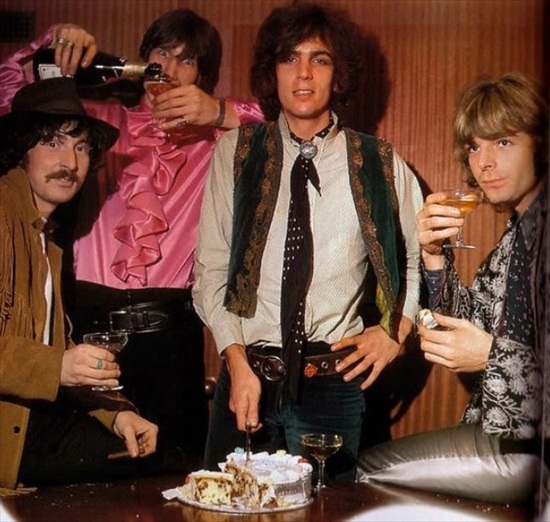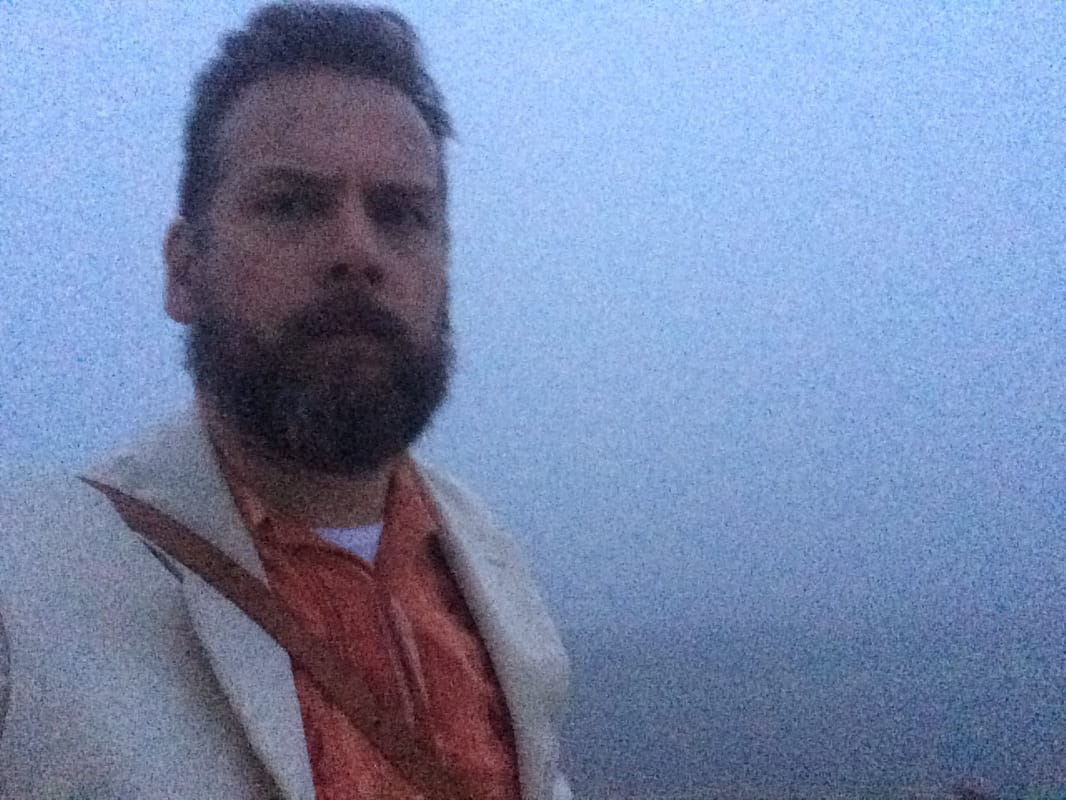|
My music taste developed oddly. I liked film soundtracks as introduced to me by Geoff Love and his Orchestra on the Music for Pleasure label: Big War Themes etc. I then liked Billy Joel. Dire Straits was the first group I liked due to a cousin giving my dad a cassette of Love Over Gold which I then got obsessed about. Vangelis and classical music, blues, the eclectic carelessness of my parent’s record collection, Ray Charles, Sam Cooke and Simon and Garfunkel. My history teacher sold me a pile of classical records. Including some Elvis. Pink Floyd, when they came along, were a natural fit. All the music I loved was cinematic. The kind I could play on my Bush alarm clock radio cassette player at night with the lights off and conjure images to. Or walk through the wet Barrow streets at twilight and turn it into New York, or the beach and turn it into Tatooine. I know that the Irish Sea dented the desert planet effect but jeez. My first knowledge of Pink Floyd was Charlie Bishop Miller’s book of the film The Wall flicked through on the back of the bus, full of disturbing images, worms, gore and Bob Geldof sans eyebrows. I listened to the music a year later and I was hooked. The Wall was the one. The pomp, the seriousness, the anger, the mystery. I didn’t know what they actually looked like for a good long while. I picked up cheap copies of the early stuff and then sought out the expensive stuff. I never loved Dark Side of the Moon. Wish You Were Here was good and Animals also. It took me a while to actually find out about the story. I read some interviews. This must have been when they were at the height of their dissension. Then I began to be real fan. Listening to the solo work, especially Roger Waters’ Pros and Cons of Hitching Hiking, and reading the Miles book about the band. There was a picture of them all as young men eating cake. I couldn’t believe people that ugly would allow themselves to be photographed eating cake. The more I found out about them – with the exception of Syd Barrett – the less I wanted to know. Theirs was a sound that seemed unplayable. It wasn’t about a group playing instruments; rather it was an intricate cacophony of muddle radio waves and cosmic energy.
I finally watched The Wall, taping it when it was on Channel 4 and then watching it over and over again. I loved Alan Parker – Angel Heart was, with Blade Runner, one of my favourite films. I watched Live at Pompeii and I went to see them play at Manchester City’s Main Road. I don’t know how old I was. Sixteen. We went down on a coach from Barrow and it was unbelievable. A massive experience. It moved me so much I spent a long time pretending to like Momentary Lapse of Reason and the Delicate Sound of Thunder live double album. Strained to convince myself that the music wasn’t getting deathly boring. A 6th Form College friend won a competition and got free tickets to see a band in Liverpool once he’d asked everybody and they’d all turned him down, he asked me if I wanted to go with him. There were arguments at home but finally I was allowed to go and we took the train. I was seventeen I think. We bought some gin and a bottle of orange pop. Drank half of the pop filled the bottle with gin and then went through the rest. I’d never heard the music of that group before. Someone might have got me a tape the night before so perhaps I listened through a couple of times, but when I was that age I needed almost to study music, playing it again and again, before I fully understood it. The Wolfgang Press played first and we stood at the back and listened and they were good. Then The Pixies came on. And that was the end of Pink Floyd. I didn’t burn my records or trash my cassettes. Nor did I give my stuff away which I was wont to do now and then. But that was that. I wanted to listen to punk, to guitar bands, to three minute bursts of energy and witty surreal lyrics about nothing and nothingness. I couldn’t bear Paganini like guitar solos anymore. And middle aged men who wore jeans and suit jackets and squabbled over intellectual property rights and arrived at gigs in helicopters. For years, I’d indulge in gruff dismissal of the Floyd. They weren’t just an adolescent passion, they were adolescence itself, with its posturing, grandiosity and self-importance. I went on to listen to Wire, Stone Roses, Nick Cave and the Bad Seeds etc. I didn’t look back. Of course now I’m 42 and music is no longer the radical statement of identity it once was. I don’t get angry at people for liking Justin Beiber and One Direction. I don’t recoil if I hear Dire Straits on the radio. Music now is a time machine and sometimes I indulge and go back, now that the internet means I don’t have to buy it all again. Listening again to Pink Floyd, I find a lot of it dull. There’s a weird white funk going on. I hate Money. Always have. A stupid song apparently written to introduce a segment of Panorama. Wish You Were Here has some strong moments and Animals is probably the one album I can listen to all the way through. The Wall (especially side 3) has some of the best things which I still love. There I can say it now. Partly because it’s actually good and partly because it takes me back to being fifteen - sixteen when I thought the concept album was the best idea rock and roll ever had. A novel in music form! So I can listen to it, in dribs and drabs, but I’m not a fan anymore. I don’t think I ever will be again. So it came as a surprise when I found myself reading Mark Blake’s Pink Floyd biography Pigs Might Fly. I didn’t realize I was still that interested. But the names were familiar, nostalgia crept in and ultimately all pop group biographies - all biographies for that matter – can give you the same vicarious pleasure regardless of liking the individuals. There’s the bit where they’re children and no one knows who they are. Then early recognition, struggle, rising to power and an inevitable plateauing and tapering off towards death. Ian Kershaw’s Hitler biography and Walter Isaacson’s biography of Steve Jobs are essentially the same book just with all the details changed. So I enjoyed reading it for that, but there were also some revelations. Principally, the discovery that all the members of Pink Floyd didn’t actually like Pink Floyd either. David Gilmour didn’t like Dark Side of the Moon that much; Richard Wright and Gilmour didn’t like The Wall; Roger Waters hated the spaced out stuff, playing live and thought most of the songs went on too long and Nick Mason forgot how to drum somewhere along the way, such was his lack of interest. The idea that Syd Barrett was some hopeless acid casualty was also quietly nixed. Although undoubtedly troubled by illness, mental and physical, the fact that he was compos mentis enough to take regular trips to London on his own and cash his many, many royalty cheques came as a welcome shock. The feeling having finished the book was liberating as each of the Floyd members eventually realized they couldn’t be arsed with Floyd any longer, I felt free not to care one way or another if I liked them or not. I could now enjoy my time machine completely, and if occasionally they irritated or bored me, well, I was probably in good company.
0 Comments
Leave a Reply. |
AuthorJohn Bleasdale is a writer. His work has appeared in The Guardian, The Independent, Il Manifesto, as well as CineVue.Com and theStudioExec.com. He has also written a number of plays, screenplays and novels. Archives
March 2019
|

 RSS Feed
RSS Feed


